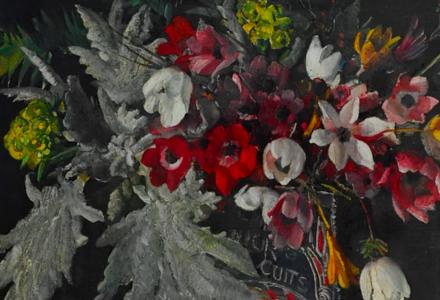Port Broughton, a tiny farming community on the Spencer Gulf, sent forty-seven of its sons to the front. Twenty-one of that number were killed overseas.
Amongst them were Elizabeth and David Carman’s boys. Clement was killed in 1916, Roland in 1917 and David as the war drew to an end. As two of the lads were underage, David Carman senior signed their consent forms. He would die a decade after the war, still mourning their loss.
David Carman could not afford to make a pilgrimage to his sons’ graves—and Roland’s and Clement’s bodies were never recovered from the battlefield. But David senior’s own grave served as their cenotaph. The ‘dead man’s penny’, a bronze medallion issued by the authorities to honour the Empire’s war dead, was set in the plinth marking his final resting place, one for each of the boys he had lost to war. Lines from Binyon’s Ode were inscribed at the base of the monument: ‘They shall grow not old, As we that are left grow old, Age shall not weary them, Nor the years condemn …’
The Carman family’s story highlights the unresolved mourning that haunted many Australian families in the wake of the Great War. It reminds us that thousands of parents outlived their sons; war was a calamity that seemed to reverse the natural order of things. And it shows how families, wearied by their grief, found a focal point for loss in monuments they themselves created. David Carman was re-united with his sons through his own memorial. The absent were somehow present again.
For full attribution of sources, suggestions for further reading and an extended version of the story itself see ‘Age shall not weary them: The Carman brothers’ in Bruce Scates, Rebecca Wheatley and Laura James, World War One: A History in 100 Stories (Melbourne, Penguin/Viking, 2015) pp. 26-7; 354.



